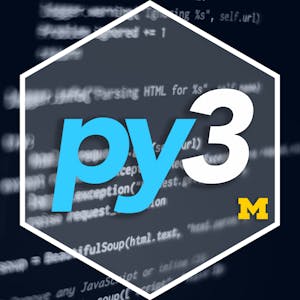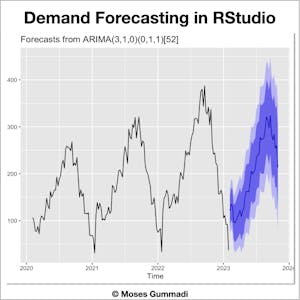Introduction to Computational Statistics for Data Scientists
About this Specialization
The purpose of this series of courses is to teach the basics of Computational Statistics for the purpose of performing inference to aspiring or new Data Scientists. This is not intended to be a comprehensive course that teaches the basics of statistics and probability nor does it cover Frequentist statistical techniques based on the Null Hypothesis Significance Testing (NHST). What it does cover is:\\n\\nThe basics of Bayesian statistics and probability\\n\\nUnderstanding Bayesian inference and how it works\\n\\nThe bare-minimum set of tools and a body of knowledge required to perform Bayesian inference in Python, i.e. the PyData stack of NumPy, Pandas, Scipy, Matplotlib, Seaborn and Plot.ly\\n\\nA scalable Python-based framework for performing Bayesian inference, i.e. PyMC3\\n\\nWith this goal in mind, the content is divided into the following three main sections (courses).\\n\\nIntroduction to Bayesian Statistics - The attendees will start off by learning the the basics of probability, Bayesian modeling and inference in Course 1.\\n\\nIntroduction to Monte Carlo Methods - This will be followed by a series of lectures on how to perform inference approximately when exact calculations are not viable in Course 2.\\n\\nPyMC3 for Bayesian Modeling and Inference - PyMC3 will be introduced along with its application to some real world scenarios.\\n\\nThe lectures will be delivered through Jupyter notebooks and the attendees are expected to interact with the notebooks.Created by: Databricks

Related Online Courses
This course, titled \'Real Estate Property Management: Manage Profitability and Efficiency\', explores the field of real estate property management. We will examine the basic principles of property... more
Participants will learn to optimize operations, enhance productivity, and address real-world challenges through strategic planning and effective implementation. The curriculum combines theoretical... more
This course introduces classes, instances, and inheritance. You will learn how to use classes to represent data in concise and natural ways. You\'ll also learn how to override built-in methods and... more
This is the second course in the Learn English: Advanced Grammar and Punctuation specialty. In this course, you will learn about a lot of different ways to join ideas to make more complex and... more
This Guided Project Demand Planning in RStudio: Create Demand Forecast is for Supply Chain and/or Operations Analysts. In this 2-hour long project-based course, you will learn how: - Analyse demand... more








